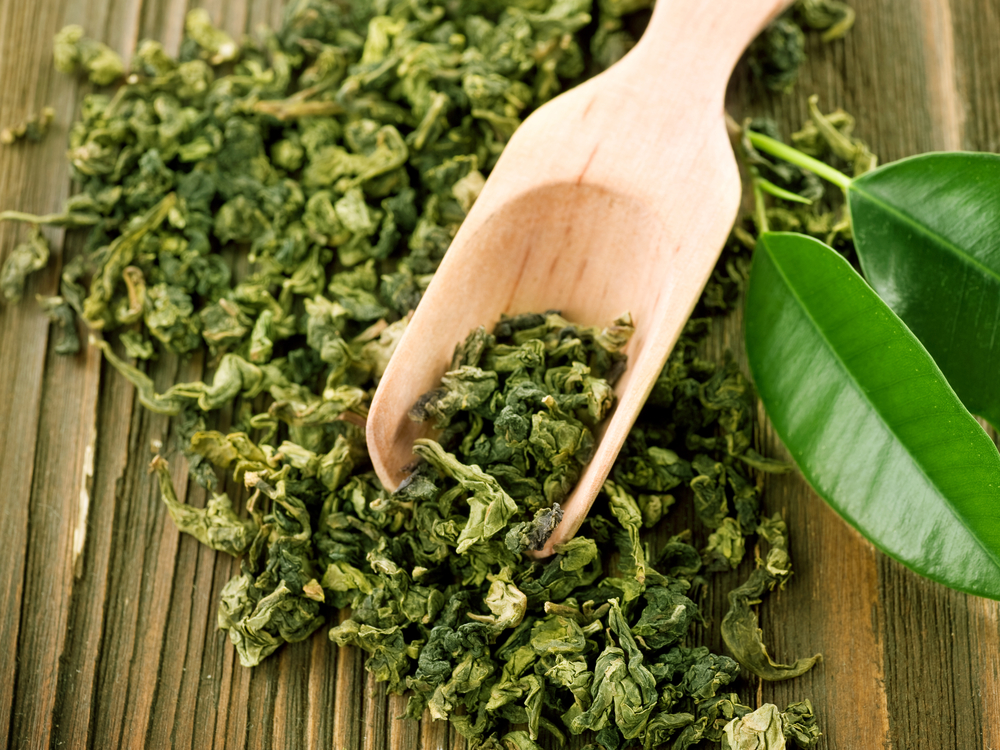
Matcha lattes at Starbucks, green tea ice cream, and bottled green tea beverages galore; the drinks made from unfermented leaves of the tea plant are almost as popular in America now as in traditional Japanese culture.
Ever wonder why green tea is being espoused as a health food? Three reasons, mainly: phytochemicals, antioxidants, and polyphenols. Phytochemicals are biologically active compounds found in plants. Researchers have found properties in green tea’s phytochemical compounds that appear to be able to control inflammation and fight off bacterial infection. These properties are not found in black tea, as they are lost in the fermentation process. Green tea is also richer in antioxidants, which fight against cellular damage caused by molecular oxidation. Green tea leaves also contain polyphenols, which are known to inhibit carcinogenesis, the process by which malignant cancers develop.
So ultimately, green tea is good for you. The only downside anyone can claim is that green tea does contain caffeine, albeit far less than black tea or coffee. The Japanese have known that green tea is beneficial to one’s health for centuries. Routine consumption is considered to be a contributing factor to the country’s inhabitants’ lower cancer rates and greater longevity. Of course, the typical Japanese diet (high in vegetables, fermented foods, and fish/low in refined sugars, processed flours and meats) is also a significant booster to one’s health. Both are worth emulating.
Oral Health Benefits
The reason why I chose to discuss green tea is because there is now scientific evidence it can do some amazing things for your oral health.
Prevent Tooth Decay – Cavities and gum disease are caused by mouth bacteria, which thrive in acidic environments. Green tea can lower acidity levels in the mouth and make it harder for bacteria to do their dirty work.
Fight Gum Disease – Gum disease is a disease of inflammation and bacterial infection, both of which green tea can help with. It may not reverse gum disease, but adding a cup of strong green tea every day may help you control your symptoms.
Freshen Breath – A University of British Columbia study found that green tea can lower the level of volatile sulfur compounds in the mouth (the cause of bad breath) better than mints, gum, or parsley.
Prevent Oral Cancer – Yes, this is true! A University of Texas study found that patients with a pre-malignant condition (oral leukoplakia) were able to reverse the condition with doses of green tea extract.
You Don’t Have to Drink It
Encouraging everyone to drink a glass of green tea every day is fine, but not everyone is going to adapt to the flavor. Some people just don’t enjoy green tea, hot or iced. In the oral health department, at least, you can get a lot of the great benefits by rinsing for several minutes with strong brew of green tea. You may not get the full chemopreventive effect if you don’t consume it, but it’s better than nothing.
Beware the Added Sugars
Will all the added sugar in a matcha latte or bottled ‘iced green tea’ counteract the health benefits of green tea? Probably not, but isn’t doing any favors for your oral health.
If oral wellness is one of the motivating factors in your drinking green tea, do yourself a favor and brew your own drinks. That way you can control the amount of sugar that goes into them, and make sure they are good and strong. Some bottled iced green teas look almost as clear as plain water and probably have too little green tea extract to make a difference. For maximum benefit, go to a tea specialty shop and buy the greenest leaves you can find, or purchase some sencha powder at an Asian market.
There are also several types of green tea leaves you can purchase at the grocery store, both loose and bagged, with fruit essences, lemon, or jasmine flavoring to “sweeten” the brew. If you must have sweetness, use your favorite low calorie non-carcinogenic sweetener.
About the Author: Dr. Mickiewicz owns a private practice in Sacramento and lectures across the nation on TMD treatments. He is a diplomate of the American Academy of Pain Management and holds membership in many professional associations for dentistry, sleep medicine, and TMD. In addition, Dr. Mick, as his patients call him, founded Pacific Orofacial Pain Consultants, a team of experts in various disciplines, who tackle the issue of TMD pain and treatment, to help sufferers find relief from chronic pain. To talk with Dr. Mick, call his Sacramento dental office at 916-469-9178.


